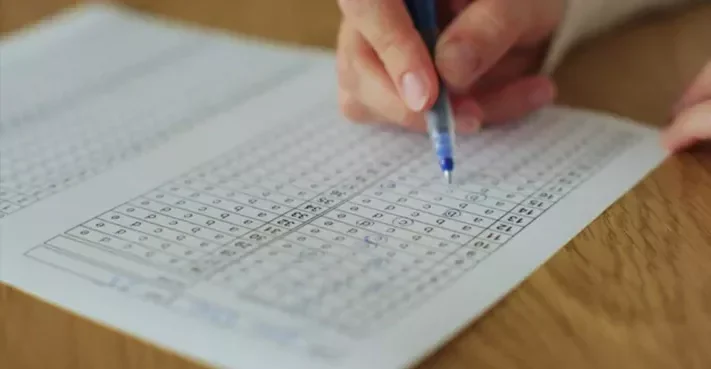The house that I lived a few years ago was on a relatively busy avenue. Across the street was a large bakery and many of its customers parked their cars in front of my house. The problem was that they often left the vehicle blocking the garage exit. Parking in front of the garage exit is prohibited, but still:
– Ah, it’s just a minute … I’ll be right there and I’ll be right back!
Or:
– Just a minute! I’m already leaving.
There was always an excuse to leave the car anywhere. There was always a justification for parking in a forbidden place. When I complained, the drivers said it was me who was being impatient and disrespectful.
After some unsuccessful attempts to remind drivers that they were hampering someone else’s comings and goings, more “persuasive” strategies begin to populate the imagination, such as leaving little notes in the rearview mirror, backing up the blocking vehicle, or nastily , surprise the driver with dog feces on the doorknob (imagination with a dose of outrage can be very creative together). But these were mind-boggling plans that were nothing but amusing corrective daydreams.
The fact is that we often come across justifications for exceptions to the rules, especially if actions lead to their own benefit, without thinking about the consequences for others. This means that in the previous situation there would be two problems related to liability: an incorrect application of the rules to one’s own actions (the rule only applies to others) and a partial consideration of the consequences of the acts performed.
This short-sightedness in the aftermath of the action could be seen broadly in 2018 during the trucker strike that paralyzed the country. Citizens, regardless of class or distinction, rushed to supermarkets to stock up on rice and other items, afraid of ending basic products. When interviewed, claimed that they just wanted to make sure that they didn’t lack anything, thus justifying exorbitant purchases like 25 bags of rice. The popular saying was that when “flour is low, my pirão first” (yucca flour boiled). As an excess of survival instinct, at the time of unexpected events the Brazilian reveals how he acts based on what is most convenient to him, to the detriment of the conditions of the rest of the community, revealing how intense his animal / instinctive side is.
What Brazilians would do during a commercial flight if the plane, for any emergency, needed to be evacuated hurriedly. The advice of the airlines is: “In case of emergency, leave your belongings and go to the nearest exit”. Imagine the Brazilians. These would think, in the same logic of the exception to park in a forbidden place, or to guarantee what is their first: only I will take the bag, will not disturb anyone; Only the notebook will not disturb and no one will complain. And with that, there would be a high chance that many would insist on carrying their belongings, even with the guidance to leave, causing chaos in evacuation or even a risk to passenger survival.
I have gathered these concerns to illustrate actions in which respect for the rules is relaxed for a particular benefit or where the consequences for themselves are taken into account to the detriment of others. This argument does not exactly adhere to utilitarian ethics, according to which we resort to the analysis of the consequences of actions (utilitarianism of acts) or of rules (utilitarianism of rules) in order to produce the greatest good for the greatest number of people. (see, for example, Mulgan, 2012).
In making this kind of moral judgment, it seems that one is voluntarily forgetting not only to apply the rules fairly, but also to consider the context of one’s action. It seems to be related to a certain cunning in apprehending reality not aligned with morally virtuous ends, such as the virtues of fortitude and justice (Sison & Ferrero, 2015). It seems to be a deviation in the use of the virtue of prudence.
This self-imposed exception suggests the involvement of two elements in moral judgment. The first represents a voluntary process of easing rules in certain situations to one’s own advantage, as if one voluntarily forgets what one already knows; a rationalization process, a self-deception for the benefit of the individual. The second element, which often accompanies the first, involves placing a momentary limitation on prudence or practical wisdom (Aristotle, 2009) in considering the consequences of actions for something one already knows from one’s experience and knowledge that one should consider. In the narrated cases it means forgetting the rights of the resident who needs to have free access to leave his house by car, to think of other consumers who need access to food in situations of calamity, or the implications for safety when evacuating an aircraft in an emergency situation. The idea refers to a process of infantilization or regression at the level of moral development, if we consider Lawrence Kohlberg’s perspective on psychology (Biaggio, 2002).
And then we may ask ourselves, what are the implications for the social and political life of decisions made from these small deviations? The consequences are many and often widespread in society, and unfortunately many can be observed in our daily lives, such as a lack of trust in our institutions and people, opportunistic attitudes or the old trickery of taking advantage. Some of these current expressions have deep roots in Brazilian culture and what has been perpetuated as a certain way of being of the Brazilian.
The moral of the exception and the opportunity to take advantage are exemplified, for example, in the discount received when no invoice is required and in the clandestine connections of water, electricity, or cable TV, the famous “cat.” This logic is so ingrained in Brazilian practices that if you don’t practice it, it’s called naive or innocent, people expect you to practice it and it helps raise your moral with others. If you object to these practices, on the contrary, you are called “Caxias” or “too neat.”
Moving beyond personal relationships and considering the moral of the exception in the public sphere, this logic may be associated with a lack of responsibility for what is in the public interest and favoring particular interests or interest groups. The morale of the exception allows the favoring of friends, advantages in access to public services, such as “getting ahead” in the lines of health care or to get a place in day care. And that happens very close to us. The two elements related to the moral of the exception may be present in actions in the public area, namely, flexibility or asymmetric forms of rule enforcement (rules should apply to everyone and the same, right?) And myopia in considering the moral issue of actions.
This is not to say that Brazilians only practice actions based on a moral exception. Is not that. What I am trying to argue is that there are situations and times when actions seem to suggest a selfish and rationalized moral judgment for particular and momentary benefits and that in other situations these same actors may require that these same rules and consequences be considered when other people are acting. And this refers to a question of justice based on reversibility, found in philosophical theory since Aristotle (2009). We are therefore alerted to the need to rethink our responsibility as we make decisions to act in order to consider the context and circumstances, the actors involved and the consequences more broadly, having in view of the purpose of our actions and our lives as a whole.
References:
Aristotle. Nicomachean Ethics. (Trad .: Antônio de Castro Caeiro). Sao Paulo: Atlas, 2009.
ARISTÓTELES. Ética à Nicômaco. (Trad.: Antônio de Castro Caeiro). São Paulo: Atlas, 2009.
BIAGGIO, A. M. Lawrence Kohlberg: Ética e educação moral. São Paulo: Moderna, 2002.
MULGAN, T. Utilitarismo. Petrópolis: Vozes, 2012.
SISON, A. J. G.; FERRERO, I. How different is neo-Aristotelian virtue from positive organizational virtuousness? Business Ethics: A European Review, 24(S2), 2015, pp. S78-S98.




